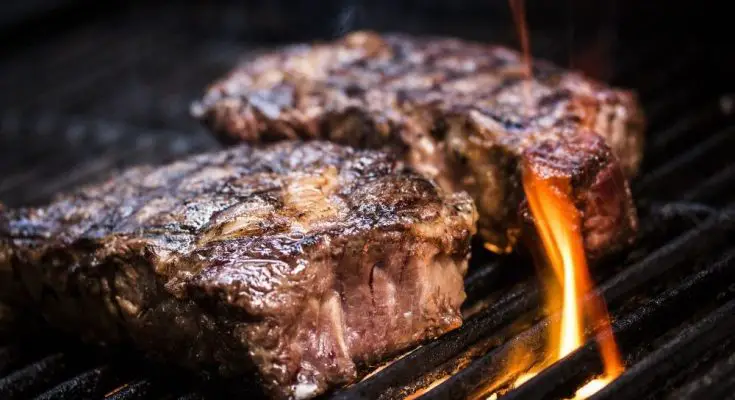This list of the common myths and misconceptions about meat will allow you to see beyond some of the confusion that pervades our culture. The messaging about meat and other foods has often caused more problems than solutions. Hopefully, by reading this article, you will become more informed the next time you go to the grocery store and look for something healthy.
Grass-Fed Beef Is Better for You
If you’ve looked at the meat and poultry section in the grocery store, the chances are that you’ve noticed a distinction made between the food options with “grass-fed” labels and those without them. When a meat manufacturer markets a grass-fed option, it wants you to believe that the animal lived a healthy life foraging for grass, not a stationary life where it ate corn, barley, or grain feed.
Meat manufacturers want you to believe this healthier animal lifestyle translates into a more wholesome meal. But there’s no reason to think there’s a significant difference between grass-fed and non-grass-fed animals. It’s a myth.
Jerky Is Mostly Filler
Among the common misconceptions about jerky is the belief that most of the jerky meat we enjoy is actually filler. Some think that jerky’s texture suggests that the food isn’t entirely meat. They think it’s a combination of mostly filler ingredients. But this is simply not the case. In reality, jerky comes from a wide array of animals. Its chewy consistency is the result of the smoking process and marinades.
You Should Eat a “Plant-Based” Diet
Nutritionists and other health experts throw around the “plant-based” term liberally. But unfortunately, its overuse created one of the common myths and misconceptions about meat. It has led the public to think that meat is bad for their health and products straight from the earth are good. But this is not the correct way to view food. There are many health benefits associated with poultry and fish, while “natural items” like rice and starch can do terrible things to the body.
Additional Resources:
Water
High Fructose Corn Syrup
Wendy’s



